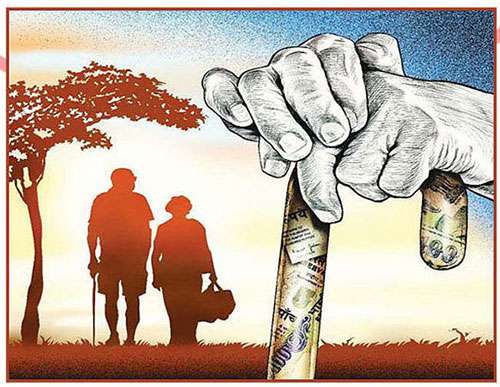Empowering the Elderly
The government, healthcare providers and society at large need to take specific initiatives to ensure the medical, physical and emotional wellbeing of senior citizens…
By Dr Steve Paul Manjaly
For centuries in India, the extended family system served as a buffer for the elderly people. However, this deemed responsibility has taken a huge hit in the last few decades due to changes in the family structure and mobility of the younger generation. With only 1.28 % of the national GDP contribution towards healthcare, most patients have to fund for their own health expenditure. Middle-aged parents have to support their adult children in their early years, as well as their aging parents. This aptly titled ‘sandwich generation’ finds it increasingly difficult to cope with it both mentally and physically. Elder abuse and neglect has become a common phenomenon. A majority of the disabled elderly are put in old age homes, which are often overcrowded and poorly maintained.
Ask any medical student on what he knows on geriatrics and you would find a dumbstruck student grappling with answers. The existing MBBS curriculum does not incorporate geriatric medicine in its 4+ years of training. Once graduated, these young doctors are lured into narrow stream ‘super specialties’ with very little knowledge of elder care. So, the government and private healthcare providers should implement the following steps:
All older patients admitted in any specialty should undergo a rapid geriatric assessment by a geriatrician within 24 hours of admission. This will prevent complications, functional decline and increased hospital stay.
A bi-weekly geriatric outpatient clinic, led by a physician or a geriatrician, needs to be promoted by both public and private healthcare providers.
Hospitals should be made elderly friendly, with separate queues at the pharmacy, laboratory and fast track access to emergency care, across other specialties.
Providing caregiver support for inpatients could help in improving patient care, as many of them live with their equally aged spouses who are unable to perform caregiver duties when their counterpart is admitted.
The geriatric team should also comprise of a dedicated physiotherapist and a dietician to help address their mobility and nutritional needs.
Outreach camps and home care services should be provided for every patient who needs support on discharge.
What initiatives need to be done by/among civil society at large to empower senior citizen?
Older persons need to be safe enough to venture out on the streets. Pavements modified for wheelchair use, public transport suited to their needs need to be established. Retirement homes and day care centres primed to the needs of the elderly need to be set up. NGOs could help in creating awareness of its benefits and help in its sustainability. Job opportunities should be made available for retirees and older persons. Senior citizen help groups could work in tandem with other officials and help identify patients with dementia and disability, to provide early medical aid..
(The author is HOD, Geriatric Medicine, Jubilee Mission Medical College, Thrissur)

